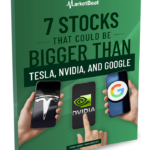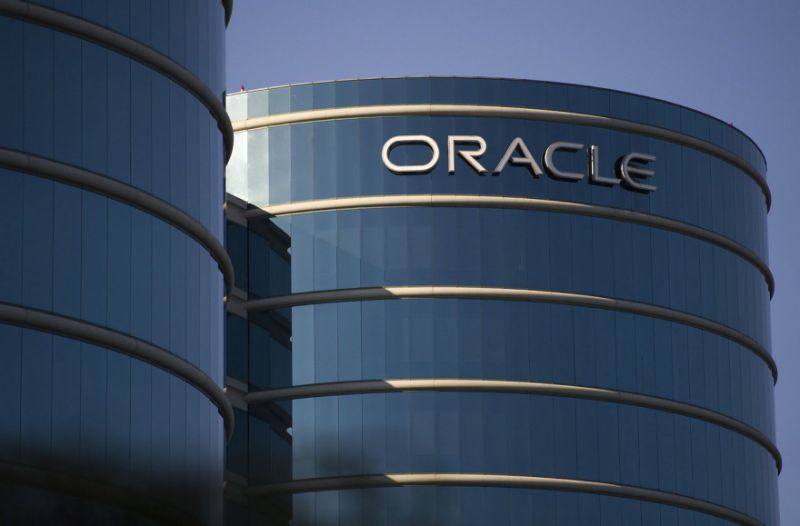(Bloomberg) — When the Internet Accountability Project popped up late last year and joined the growing crusade against Big Tech, the nonprofit group refused to say who was financing it.
Turns out, at least one of its benefactors is Oracle Corp.
Oracle donated between $25,000 and $99,999 last year to the internet project, according to a new political-giving report Oracle posted on its website. The group calls itself a conservative nonprofit advocating for tougher privacy rules and stronger antitrust enforcement against the internet giants.
The IAP financing is just one part of an aggressive, and sometimes secretive, battle Oracle has been waging against its biggest rivals, including Amazon.com Inc. and Alphabet Inc.’s Google.
Oracle spent years fighting to unseat Amazon as the front-runner for a lucrative Pentagon cloud contract, which was awarded to Microsoft Corp. in October.
The Redwood City, California, company has also been locked in a decade-long legal dispute with Google, claiming the search-engine giant violated Oracle copyrights by including some Java programming code in the Android phone. Oracle acquired Java’s developer, Sun Microsystems Inc., in 2010.
Earlier this month, IAP filed an amicus brief supporting Oracle’s position in the case. IAP said it wants to “ensure that Google respects the copyrights of Oracle and other innovators.” The U.S. Supreme Court on March 24 will hear oral arguments in the Google v. Oracle America case.
The Trump administration on Feb. 19 also urged the Supreme Court to reject Google’s appeal in the case. Its brief appeared the same day that Larry Ellison, Oracle’s co-founder and chairman, hosted a high-dollar fundraiser at his Rancho Mirage estate for President Donald Trump. The event prompted about 300 Oracle employees to stage a protest the next day. The U.S. had previously supported Oracle as the case wound its way through the courts.
Oracle’s donations disclosure reveals that it contributed to at least four other groups that filed supportive briefs in the Supreme Court case. Google has also donated money to at least 10 groups that have filed briefs on its behalf in the high court case.
Oracle and Amazon didn’t immediately respond to requests for comment about the Oracle disclosure. Google declined to comment.
IAP President Mike Davis said in a statement the group doesn’t disclose its financial backers but specified that Oracle didn’t fund its Supreme Court brief.
The internet project was launched in September by Davis, a former aide to Republican Senator Chuck Grassley of Iowa, and Rachel Bovard, a former aide to Republican Senator Rand Paul of Kentucky. The group aims to “lend a conservative voice to the calls for federal and state governments to rein in Big Tech before it is too late,” according to its website.
The IAP is a Section 501(c)(4), known as a “social-welfare” organization. That designation means it isn’t required to disclose donors as long as it doesn’t spend more than half of its money on campaign advertisements or activities to sway an election.
Among other policies, IAP supports curtailing Section 230 of the 1996 Communications Decency Act, which shields tech companies from liability for content that users post on their platforms. The clause saves tech companies from having to review content before it’s published online, and then shields them from lawsuits if that content turns out to be problematic.
Earlier: Barr Takes Aim at Legal Shield Enjoyed by Google, Facebook
In interviews and on social media, IAP has supported Republican Senator Josh Hawley of Missouri, who has proposed that tech companies lose the legal immunity unless they can prove to the Federal Trade Commission that they treat their content in a politically neutral manner.
Since September, IAP has tweeted at least 11 times about Hawley’s legislative efforts against Google and other tech companies. Other IAP tweets highlight instances in which Google-funded groups fought on the internet giant’s behalf.
“Holy smokes you guys, DC is awash in @Google money,” Bovard tweeted in September.
Davis, the group’s president, wrote last week on Townhall.com that Google’s battle with Oracle is “the poster child for what we at IAP call ‘the Great 21st Century Internet Heist.’” He said the company “is anathema to conservatives and everything we stand for,” without disclosing that his group is funded by Oracle.
Earlier: It’s the Kochs vs. the Mercers in the Right’s Big Tech Brawl
Oracle claims Google owes it at least $8.8 billion for using the Java code without a license. Google argues it was fair to use parts of the programming language to help Android communicate more easily with other software.
The case has split Silicon Valley by pitting software makers who favor stronger copyright protections against companies that rely on others’ code to produce new innovations.
Other Campaigns
IAP is far from the only anti-tech group Oracle has funded. It also gave between $25,000 and $99,999 to the Free and Fair Markets Initiative, according to the disclosure.
Free and Fair Markets claims it is a grassroots coalition of businesses and advocacy groups fighting for a better economy. In practice, it has focused more on publicizing negative reports about Amazon. The Wall Street Journal reported that Oracle, Walmart Inc. and the Simon Property Group had financed the group.
For the last two years, Oracle has also waged a multi-front battle against Amazon over the Pentagon’s Joint Enterprise Defense Infrastructure, or JEDI, cloud contract. The deal, which could be worth $10 billion over a decade, is designed to transition much of the Pentagon’s data into one commercially operated cloud system.
For more: Oracle’s Catz Is Said to Talk Amazon Contract Row With Trump
Amazon was seen as the leading contender because it had already won a major cloud contract with the U.S. Central Intelligence Agency and had obtained high levels of security clearance. The move to Amazon’s cloud would have threatened Oracle’s legacy database business with the Defense Department.
Oracle led a coalition of other tech companies, including Microsoft Corp. and International Business Machines Corp., to oppose the Pentagon’s decision to award the contract to a sole bidder. In addition to lobbying Congress and the Trump administration, Oracle also filed — and lost — challenges through the Government Accountability Office and the U.S. Court of Federal Claims.
Oracle is currently appealing a July ruling that it lacked standing to challenge the contract.
(Updates with comment from IAP in paragraph 11)
–With assistance from Greg Stohr.
To contact the reporters on this story: Naomi Nix in Washington at [email protected];Joe Light in Washington at [email protected]
To contact the editors responsible for this story: Sara Forden at [email protected], Paula Dwyer
<p class="canvas-atom canvas-text Mb(1.0em) Mb(0)–sm Mt(0.8em)–sm" type="text" content="For more articles like this, please visit us at bloomberg.com” data-reactid=”78″>For more articles like this, please visit us at bloomberg.com
<p class="canvas-atom canvas-text Mb(1.0em) Mb(0)–sm Mt(0.8em)–sm" type="text" content="Subscribe now to stay ahead with the most trusted business news source.” data-reactid=”79″>Subscribe now to stay ahead with the most trusted business news source.
©2020 Bloomberg L.P.











